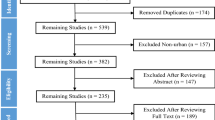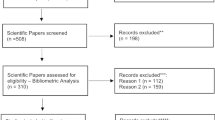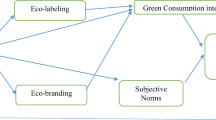Abstract
In an attempt to mitigate the effects of extreme natural events caused by greenhouse gases (GHGs), a significant number of researchers and environmentalists have repeatedly stressed the importance of implementing protective measures, including the promotion of green consumption. This study examined the elements that motivated the willingness and the practice of green behavior (GB) among low-income households in coastal Peninsular Malaysia. To meet the research objectives, this study adopted the survey questionnaire method to collect data from 380 low-income households. The findings revealed that self-efficacy (SE) and environmental concerns (EC) have statistically significant effects on the attitude toward green products (ATT), while subjective norms (SN) and perceived behavioral control (PBC) have influence on the intention of green vehicles. Eventually, the study discovered the effects of the intention to adopt green vehicle on green vehicle adoption behavior. Hence, the findings of this study provide new insights for policymakers in Malaysia to place more emphasis on improving consumer attitudes, social standards, and PBC, which will ultimately contribute to the adoption of environment-friendly vehicles. In addition, car manufacturers should support this program by designing products and options that would encourage those in the low-income group to replace their conventional vehicles with green alternatives in Malaysia.

Similar content being viewed by others
References
Adnan N, Nordin SM, Bin Bahruddin MA (2019) Sustainable interdependent networks from smart autonomous vehicle to intelligent transportation networks. In: Sustainable Interdependent Networks II. Springer, New York, pp 121–134
Adnan N, Nordin SM, Amini MH, Langove N (2018) What make consumer sign up to PHEVs? Predicting Malaysian consumer behavior in adoption of PHEVs. Transp Res A Policy Pract 113:259–278
Adnan N, Nordin SM, Rahman I, Rasli AM (2017) A new era of sustainable transport: an experimental examination on forecasting adoption behavior of EVs among Malaysian consumer. Transp Res A Policy Pract 103:279–295
Afroz R, Masud MM, Akhtar R, Islam MA, Duasa JB (2015) Consumer purchase intention towards environmentally friendly vehicles: an empirical investigation in Kuala Lumpur, Malaysia. Environ Sci Pollut Res 22(20):16153–16163
Ajzen I (1991) The theory of planned behavior. Organ Behav Hum Decis Process 50(2):179–211
Ajzen I (2002a) Constructing a TPB questionnaire: conceptual and methodological considerations. Working Paper, University of Massachusetts, Amherst September 2002a. Available at http://chuang.epage.au.edu.tw/ezfiles/168/1168/attach/20/pta_41176_7688352_57138.pdf. Accessed 05 03 2018
Ajzen I (2002b) Residual effects of past on later behavior: habituation and reasoned action perspectives. Personal Soc Psychol Rev 6(2):107–122
Ajzen I (2002c) Perceived behavioral control, self-efficacy, locus of control, and the theory of planned behavior. J Appl Soc Psychol 32(4):665–683
Ajzen I, Fishbein M (1977) Attitude-behavior relations: a theoretical analysis and review of empirical research. Psychol Bull 84(5):888–918
Ajzen I, Fishbein M (1980) Understanding attitudes and predicting social behaviour. Prentice-Hall, Englewood Cliffs
Bagozzi RP, Yi Y, Phillips LW (1991) Assessing construct validity in organizational research. Adm Sci Q 36(3):421–458
Bamberg S (2003) How does environmental concern influence specific environmentally related behaviors? A new answer to an old question. J Environ Psychol 23(1):21–32
Bandura A (1977) Self-efficacy: toward a unifying theory of behavioral change. Psychol Rev 84(2):191–215
Bandura A (1986) The explanatory and predictive scope of self-efficacy theory. J Soc Clin Psychol 4(3):359–373
Beck L, Ajzen I (1991) Predicting dishonest actions using the theory of planned behavior. J Res Pers 25(3):285–301
Bobek DD, Hatfield RC (2003) An investigation of the theory of planned behavior and the role of moral obligation in tax compliance. Behav Res Account 15(1):13–38
Brécard D, Hlaimi B, Lucas S, Perraudeau Y, Salladarré F (2009) Determinants of demand for green products: an application to eco-label demand for fish in Europe. Ecol Econ 69(1):115–125
Cheah I, Phau I (2011) Attitudes towards environmentally friendly products: the influence of ecoliteracy, interpersonal influence and value orientation. Mark Intell Plan 29(5):452–472
Chen K, Deng T (2016) Research on the green purchase intentions from the perspective of product knowledge. Sustainability 8(9):1–16
Cheung R, Lau M, Lam A (2015) Factors affecting consumer attitude towards organic food: an empirical study in Hong Kong. J Glob Scholars Market Sci 25(3):216–231
Chin WW (1998) The partial least squares approach to structural equation modeling. Mod Methods Bus Res 295(2):295–336
Department of Statistics Malaysia (2013) Informal Sector Workforce Survey Report Malaysia 2013. Department of Statistics, Putrajaya
Diamantopoulos A, Siguaw JA (2006) Formative versus reflective indicators in organizational measure development: a comparison and empirical illustration. Br J Manag 17(4):263–282
Durndell A, Haag Z (2002) Computer self efficacy, computer anxiety, attitudes towards the Internet and reported experience with the Internet, by gender, in an East European sample. Comput Hum Behav 18(5):521–535
Fishbein M, Ajzen I (1975) Belief, attitude, intention and behavior: an introduction to theory and research reading. Addison-Wesley, MA, p 6
Gallagher KS, Muehlegger E (2011) Giving green to get green? Incentives and consumer adoption of hybrid vehicle technology. J Environ Econ Manag 61(1):1–15
Giles M, Mcclenahan C, Cairns E, Mallet J (2004) An application of the theory of planned behaviour to blood donation: the importance of self-efficacy. Health Educ Res 19(4):380–391
Ha H, Janda S (2012) Predicting consumer intentions to purchase energy-efficient products. J Consum Mark 29(7):461–469
Hair JF, Ringle CM, Sarstedt M (2011) PLS-SEM: indeed a silver bullet. J Mark Theory Pract 19(2):139–152
Hair JF, Ringle CM, Sarstedt M (2013) Partial least squares structural equation modeling: rigorous applications, better results and higher acceptance. Long Range Plan 46(1-2):1–12
Hong YH, Khan N, Abdullah MM (2013) The determinants of hybrid vehicle adoption: Malaysia perspective. Aust J Basic Appl Sci 7(8):347–454
IEA (2007) Key world energy statistics, 2007. International Energy Agency, Paris Available at https://www.iea.org/publications/freepublications/publication/KeyWorld2017.pdf. Accessed 12 03 2018
IEA (2009) World energy outlook 2009. International Energy Agency, Paris Available at https://www.iea.org/textbase/npsum/weo2009sum.pdf. Accessed 12 03 2018
Janmaimool P (2017) Application of protection motivation theory to investigate sustainable waste management behaviors. Sustainability 9(7):1079
Kim Y, Choi SM (2005) Antecedents of green purchase behavior: an examination of collectivism, environmental concern, and PCE. In: Menon G, Rao AR (eds) ACR North American Advancesin Consumer Research, 32nd edn. Association for Consumer Research, Duluth, pp 592–599
Li Q, Qiao F (2017) Sustainable strategies to mitigate toxic impacts of transportation system on the environment. Environ Toxicol Stud J 1(1):1–3
Lim S, Lee KT (2012) Implementation of biofuels in Malaysian transportation sector towards sustainable development: a case study of international cooperation between Malaysia and Japan, Renew Sust Energ Rev, 16(4): 1790–1800
Liñán, F., Rodríguez-Cohard, J. C., & Rueda-Cantuche, J. M. (2005). Factors affecting entrepreneurial intention levels. In 45th Congress of the European Regional Science Association: “Land Use and Water Management in a Sustainable Network Society”, 23-27 August 2005, Amsterdam, The Netherlands. Available at https://www.econstor.eu/handle/10419/117622. Accessed 22 03 2018
Mahmud SND, Osman K (2010) The determinants of recycling intention behavior among the Malaysian school students: an application of theory of planned behaviour. Procedia Soc Behav Sci 9:119–124
Maichum K, Parichatnon S, Peng K (2016) Application of the extended theory of planned behavior model to investigate purchase intention of green products among Thai consumers. Sustainability 8(10):1–20
Mamun AA, Fazal SA, & Zainol NR (2019). Economic vulnerability, entrepreneurial competencies, and performance of informal micro-enterprises. J Poverty, 1–22. https://doi.org/10.1080/10875549.2019.1587676
Marques CS, Ferreira JJ, Gomes DN, Gouveia Rodrigues R (2012) Entrepreneurship education: how psychological, demographic and behavioural factors predict the entrepreneurial intention. Educ Train 54(8/9):657–672
Moons I, Pelsmacker P (2012) Emotions as determinants of electric car usage intention. J Mark Manag 28(3-4):195–237
Osman A, Isa F, Othman S, Jaganathan M (2014) Attitude towards recycling among undergraduate students in Malaysia. Am Eurasia J Sustain Agric 8(13):6–12
Podsakoff PM, MacKenzie SB, Lee JY, Podsakoff NP (2003) Common method biases in behavioral research: a critical review of the literature and recommended remedies. J Appl Psychol 88(5):879–903
Prime Minister’s Department. (2010). Government Transformation Programme Annual Report 2010. Prime Minister’s Office. Available at http://www.pmo.gov.my/dokumenattached/GTP_AR2010_ENG_FINAL.pdf. Accessed 15 03 2018
Qader I, Zainuddin Y (2011) The influence of media exposure, safety and health concerns, and self-efficacy on environmental attitudes towards electronic green products. Asian Acad Manag J 16(2):167–186
Ramayah T, Lee JWC, Lim S (2012) Sustaining the environment through recycling: an empirical study. J Environ Manag 102:141–147
Reinartz W, Haenlein M, Henseler J (2009) An empirical comparison of the efficacy of covariance-based and variance-based SEM. Int J Res Mark 26(4):332–344
Rezvani Z, Jansson J, Bodin J (2015) Advances in consumer electric vehicle adoption research: a review and research agenda. Transp Res Part D: Transp Environ 34:122–136
Sánchez M, López-Mosquera N, Lera-López F (2015) improving pro-environmental behaviours in Spain. The role of attitudes and sociodemographic and political factors. J Environ Policy Plan. https://doi.org/10.1080/1523908X.2015.1046983
Sang YN, Bekhet HA (2015) Modelling electric vehicle usage intentions: an empirical study in Malaysia. J Clean Prod 92:75–83
Tabernero C, Hernández B (2011) Self-efficacy and intrinsic motivation guiding environmental behavior. Environ Behav 43(5):658–675
Tonglet M, Phillips PS, Read AD (2004) Using the theory of planned behaviour to investigate the determinants of recycling behaviour: a case study from Brixworth, UK. Resour Conserv Recycl 41(3):191–214
Walton T, Austin D (2011) Pro-environmental behavior in an urban social structural context. Sociol Spectr 31(3):260–287
Wang S, Fan J, Zhao D, Yang S, Fu Y (2016) Predicting consumers’ intention to adopt hybrid electric vehicles: using an extended version of the theory of planned behavior model. Transportation 43(1):123–143
Wu S, Chen J (2014) A model of green consumption behavior constructed by the theory of planned behavior. Int J Market Stud 6(5):119–132
Author information
Authors and Affiliations
Corresponding author
Additional information
Responsible editor: Philippe Garrigues
Publisher’s note
Springer Nature remains neutral with regard to jurisdictional claims in published maps and institutional affiliations.
Electronic supplementary material
ESM 1
(SAV 36 kb)
Appendix 1
Appendix 1
Rights and permissions
About this article
Cite this article
Al Mamun, A., Masud, M.M., Fazal, S.A. et al. Green vehicle adoption behavior among low-income households: evidence from coastal Malaysia. Environ Sci Pollut Res 26, 27305–27318 (2019). https://doi.org/10.1007/s11356-019-05908-2
Received:
Accepted:
Published:
Issue Date:
DOI: https://doi.org/10.1007/s11356-019-05908-2




